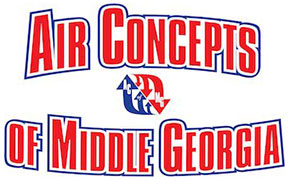Buying your first home is an exhilarating experience. You’re likely trying to keep track of a dozen things or more about making the right choice. We believe that understanding your future HVAC system is vital. The property’s HVAC system represents a significant investment and potential source of long-term costs, so being thorough should be a top priority for first-time homebuyers.
In this guide, we’ll share seven tips for learning everything you can about a home’s heating and cooling system. And if you want a more in-depth opinion from the experts, don’t hesitate to contact Air Concepts of Middle Georgia. Our experienced team can weigh in on your options with industry insights you won’t find elsewhere.
1. Which Kind of HVAC System Does the Home Use?
Start by identifying what specific HVAC system the home has. Furnaces tend to last longer compared to air conditioners, and newer types of HVAC systems like heat pumps feature average life spans that are impressively long. Getting the details on the make and specific model ensures you have a clear idea of how much it might cost in upkeep over time.
2. What Is the Current System’s Age?
It’s just as smart to learn how old the HVAC system is when you’re looking at a new home. For the most part, HVAC systems should survive for around 10-12 years. Knowing when it was installed helps you plan for possible repair needs or considerations if it might eventually stop working. Older systems may be more vulnerable to problems, so budgeting for a replacement unit could be necessary sooner than you thought.
3. Is the Warranty Active?
Don’t forget to look into whether the HVAC system is still under warranty. If it is, that’s great news because it can lower maintenance expenses. HVAC warranties often cover parts and labor, but the details in each policy will vary. Don’t forget to look into any terms that seem confusing to make sure you fully understand your coverage and the likelihood of out-of-pocket costs.
4. Does the System Have a Documented Maintenance History?
Don’t forget to check the maintenance history of the HVAC system, if such information is available. This kind of information can reveal if there have been regular problems or how often maintenance is performed. Inquire about key tasks such as changing the air filter, which means it enjoyed more regularly scheduled tune-ups.
5. Do You Know Its Energy Efficiency Ratings?
Purchasing a home with a heating and cooling system with great energy efficiency means more manageable utility bills and a smaller environmental impact. Check out the seasonal energy efficiency ratio (SEER) ratings for air conditioning as well as the annual fuel utilization efficiency (AFUE) for furnaces. Higher SEER ratings mean better cooling across the entire season, while strong AFUE ratings illustrate that the fuel is more effectively burned for useable heat.
6. Can You Spot Trouble After Completing an Informal Inspection?
Even without the know-how of an HVAC technician, it’s still a good idea to examine the HVAC system yourself. Keep an eye out for any concerning items that might have been overlooked. This can mean bizarre noises, spots with uneven heating or cooling and attempts at concealing any serious damage.
7. Is an Experienced HVAC Technician Available to Help?
If you’re unsure about the current state of the HVAC system, it’s never a bad idea to get an assessment and recommendation from certified HVAC technicians. They are skilled at identifying things you may not know about, like leaks in the refrigerant, damage to the wiring or inefficient ductwork.
A Consultation with Air Concepts of Middle Georgia Simplifies Your Home-Buying Journey
Selecting your first home ought to be exciting, and Air Concepts of Middle Georgia will do everything possible to ensure it stays that way. Connect with us at 478-200-5689. We can go over the details about how our HVAC services help make this process smoother, giving you what you need to make an offer with confidence.
